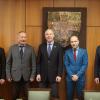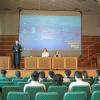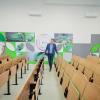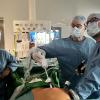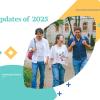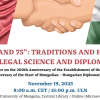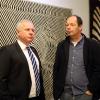“The Common Denominator” – Resonance, Acceleration, and Mediatization
2025
Oct
18
Alienation, acceleration, resonance — these key concepts have become essential in the social sciences, forming part of our theoretical understanding of today’s fast-paced world. The eminent scholar Hartmut Rosa visited Hungary for the first time to take part in a conference held on 9–10 October at the Faculty of Humanities and Social Sciences of the University of Pécs. During the event, Dr Viktor Berger, Associate Professor at the University of Pécs, also gave a lecture in which he situated the theory of resonance within the context of mediatization and online worlds.
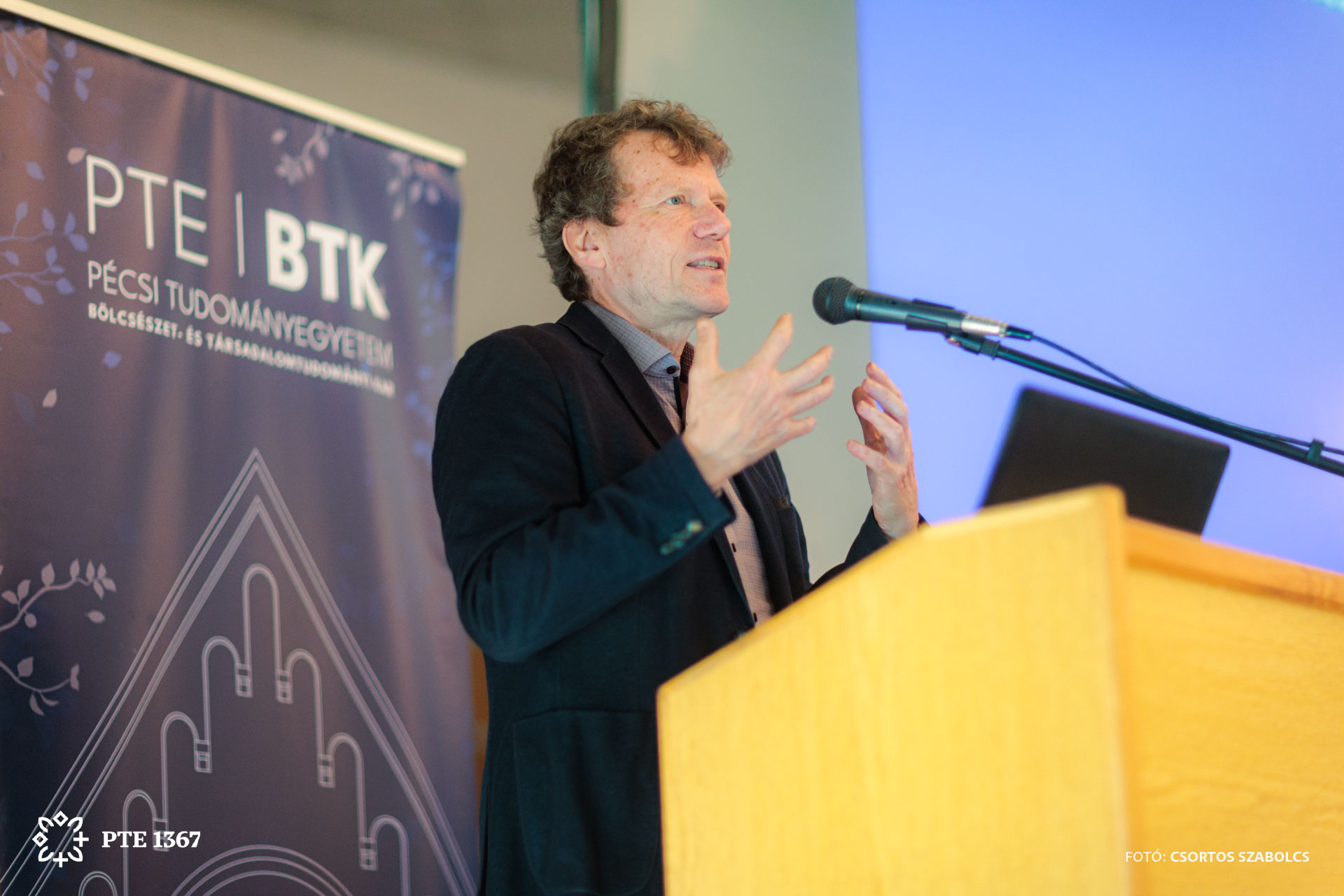
The second day began with a keynote lecture by Professor Hartmut Rosa from the University of Jena, followed by six further presentations exploring related themes. Scholars from the University of Pécs also joined the progressive discourse, expanding upon the theories of resonance, acceleration (the time management of modern technological societies) and alienation within their own fields of research.
Resonance can only be fully understood when considered alongside the other two concepts, and within the context of our rapidly changing modernity. The theory has its roots in the sociology of time: put simply, modern societies operate through an ever-increasing pace, maintaining themselves via what Rosa calls dynamic stabilisation. As he describes it, “if we do not become faster, we fall behind.” Institutions and social structures are therefore built upon continuous dynamism. As a result, individuals attempt to keep up by constantly expanding their horizons, yet this perpetual acceleration often leads to alienation. On a personal level, burnout is a clear example; rising social aggression may also be understood within this framework.
In response, Hartmut Rosa proposes a new “post-productive” social arrangement known as adaptive stabilisation. This model holds that development and acceleration should serve not merely to sustain existing conditions but to transform them, ensuring that society’s institutional structures are no longer dependent on an ever-accelerating tempo.
Resonance stands in opposition to alienation and, according to Rosa, consists of four main components:
Something addresses us, and we open ourselves to it.
We respond to it — though not necessarily in agreement.
We are transformed, at least in part, through the interaction.
Resonance cannot be forced or controlled; it is open-ended, founded on the duality of listening and response rather than optimisation and intensification.
Several contributors approached the theory critically, reinterpreting it in new contexts. Among them was Dr Viktor Berger, who examined the phenomenon of resonance in online worlds while exploring its connections to the concept of the “good life”. His presentation drew on a phenomenological interpretation of the mediatized world and his own applied research, through which he related resonance to the degree of empathy observable in digital spaces.
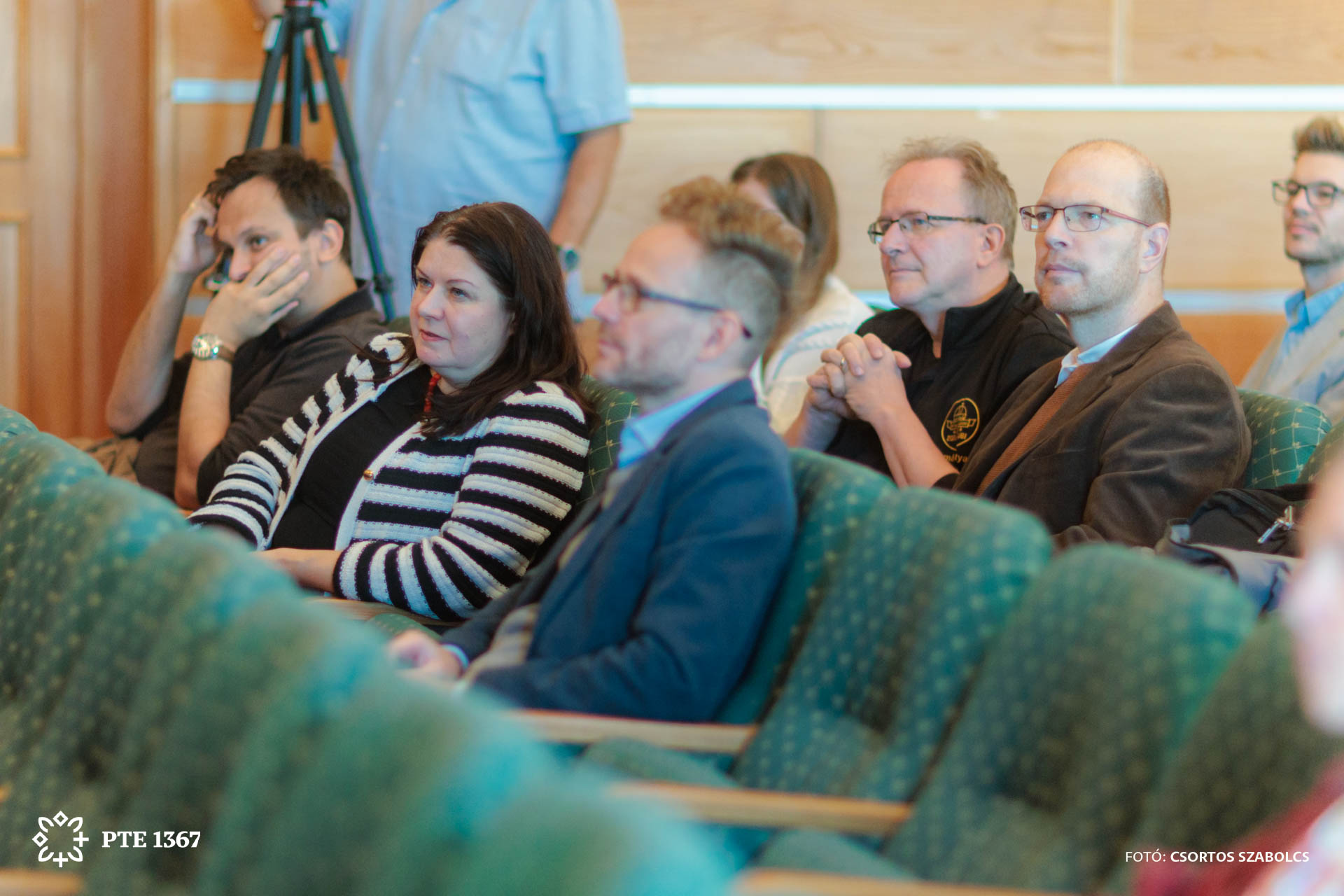
According to Dr Berger, “the theory of resonance proves to be an important interpretive tool”: one that helps us understand hybrid situations such as GPS-mediated navigation. He also addressed the ways in which resonance might appear in screen-based digital environments, in some respects diverging from Rosa’s view, which regards such experiences as “false” or “incomplete” forms of resonance. Berger highlighted examples from e-sports, where players extend their embodied presence through avatars, sending signals that function much like non-verbal communication in the physical world.
Ultimately, Berger concluded that no definitive answer can be given as to whether genuine resonance exists in online spaces, yet empathy becomes a crucial criterion: “If empathy is possible in digital contexts, and the lived body is not excluded, then in certain cases a limited degree of resonance may indeed occur.”
“Human beings are creatures in search of resonance.” Whether this takes place in our everyday lives or within mediatized environments, the pressures of acceleration weigh ever more heavily upon us. Interpreting these phenomena remains one of the core tasks of social research. For this reason, events such as this — lectures and discussions that bring together leading scholars in the field — are invaluable opportunities to seek answers, or perhaps simply a common denominator, within their theoretical frameworks.
The lecture series turned out to be far more than a formal exchange. “Thank you for the resonance!” — with these words, the distinguished scholar concluded his talk, noting that its greatest success lay not in the debate itself but in the participants’ genuine engagement: scholars who, quite literally, resonated with one another.
- Log in to post comments
University of Pécs | Chancellery | IT Directorate | Portal group - 2020.
